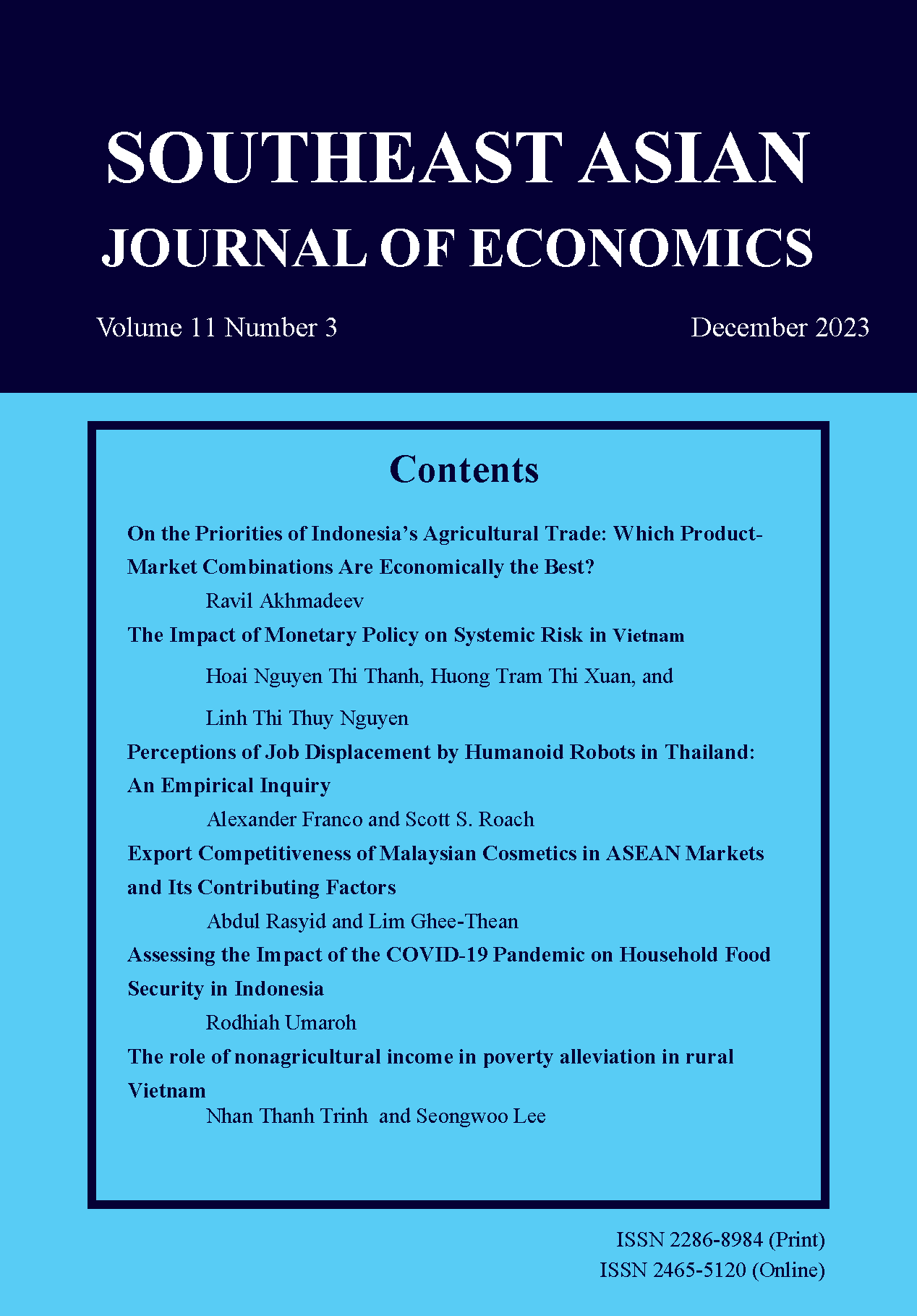The Impact of Monetary Policy on Systemic Risk in Vietnam
Keywords:
financial firms, monetary policy, systemic riskAbstract
This study examines the impact of monetary policy on controlling inflation (2010–2012), economic stability, and development (2013-2020) on the systemic risk of Vietnamese financial institutions. The data was retrieved from the Vietnamese stock market, specifically relating to 29 listed financial firms (commercial banks, insurance firms, and securities companies) for 11 years (2010– 2020). The analysis consists of two steps, including a systemic risk measurement in Vietnam based on the Marginal Expected Shortfall (MES) method and employing a Vector Autoregressive model (VAR Model) for investigating the effect of monetary policy and Vietnam's systemic risk. We find the impact of monetary policy on systemic risk when the combination of money supply and interest rates leads to a more pronounced effect than when only one of two measures is implemented. On the other hand, the impact of an expansionary monetary policy on systemic risk is almost negligible in the average period.
Downloads
Published
How to Cite
Issue
Section
License

This work is licensed under a Creative Commons Attribution-NonCommercial-NoDerivatives 4.0 International License.
The submission of a manuscript implies that the paper is an original work and has not been published elsewhere. The author(s) authorize the journal to reproduce or distribute the paper in printed or other electronic forms.







